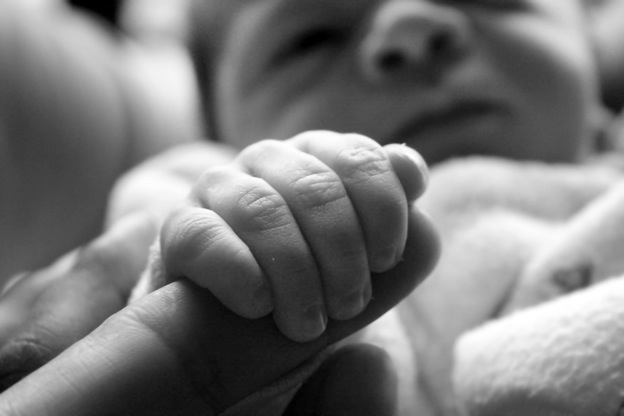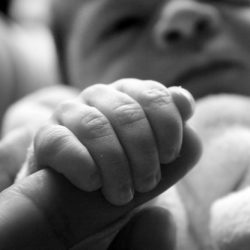SingaporeMotherhood | Parenting
September 2013
Breastfeeding & Your Fertility

Many mothers wonder about their ability to conceive while still breastfeeding their babies. How is your fertility affected by breastfeeding? How does breastfeeding help mothers space their babies naturally, and how can you can increase your chances of conceiving while breastfeeding? Read on to find out.
[banner][/banner]
How does the menstrual cycle work?
Your menstrual cycle is hormonally controlled. It lasts for about 28 days from the first day of your period. After the period, your uterine lining thickens in preparation for possible fertilisation. An ovum is released between days twelve and 16.
If fertilisation does not occur, the ovum is passed out. Your uterine lining thickens further and eventually sheds as menstruation in the beginning of the next cycle. If pregnancy ensues, the cycles are interrupted, resuming after birth.
How does breastfeeding affect my menstrual cycles?
After birth, the vaginal blood loss or discharge you experience may last for several weeks, changing from red to brown to yellowish-white. Any bleeding within 56 days after birth is not considered menstruation.
When you are breastfeeding, your baby’s suckling affects hormone levels, inhibiting ovulation. This results in lactational amenorrhea, the absence of periods. The timing of your periods returning after giving birth depends largely on your baby’s suckling and breastfeeding patterns.
How does fertility return?
Fertility returns gradually. The initial period or periods while breastfeeding may not be followed by ovulation, hence there is no chance of conceiving. This is most likely if menses returns in the first six months after birth. It is less common but possible for ovulation to begin before menstruation, making it possible for a mother to conceive without realising that she is fertile. As your fertility is returning, you may experience premenstrual symptoms at a certain time every month, for many months before your period actually begins.
Can I become pregnant while breastfeeding?
Your chances of conceiving are less than two per cent if:
- Your baby is less than six months old.
- You are fully breastfeeding, with your baby receiving all nourishment from the breast or only one to two mouthfuls of other food daily.
- Your periods have not resumed.
This method of preventing pregnancy is called the Lactational Amenorrhea Method (LAM). Once your periods have resumed, fertility is returning. Another contraceptive method is necessary to avoid any chance of pregnancy.
How breastfeeding is managed
In her book Breastfeeding & Natural Child Spacing, author and co-founder of the Couple to Couple League Sheila Kippley describes ‘ecological breastfeeding’ as
- providing all nourishment at the breast from six to eight months of age
- frequent, unrestricted nursing
- nursing to comfort
- lying down for naptime and night nursings
- avoiding practices that limit nipple stimulation such as using bottles or feeding schedules
Ecological breastfeeding produces a lengthy period of postpartum amenorrhea and natural infertility, says Kippley. Majority of mothers who breastfeed ecologically — up to 48 per cent, according to Jen O’Quinn in her book Natural Child Spacing & Breastfeeding — have their periods return between twelve and 24 months of giving birth.
What is ‘natural child spacing’?
Breastfeeding provides a natural delay to being able to conceive again, postponing the arrival of another child. Your nursing child’s breastfeeding patterns and attachment needs as well as your own body’s physiology determine the unique spacing between your births. As researcher, lecturer and community health director Dr Herbert Ratner explains, the more a baby has a need to suck, the less ready he is to cope with a new sibling.
Mrs Liew, a 32-year-old mother of two, breastfed her older toddler for almost four years and conceived the next baby after weaning. “My children have a five-year age gap. My older child had intense breastfeeding needs, and I was determined to let him wean in his time. To me, not conceiving while he was still breastfeeding felt like Nature’s way of telling me that his needs meant that I just needed to wait a little,” she says.
How can I increase my chances of conceiving?
Conceiving while breastfeeding is possible for most mothers. If you face difficulties, you can increase your chances of becoming pregnant in these ways:
- Charting signs related to your menstrual cycle. This will give you an overall idea of your fertility, as it returns over weeks or months.
- Becoming aware of physical and emotional changes in your body. This will help you recognise when fertility has returned and when ovulation is occurring, enabling you to time intercourse accordingly.
- Initiating changes in your nursling’s breastfeeding pattern.
According to Hilary Flower in her article ‘Getting Pregnant While Breastfeeding’, sudden changes tend to bring back fertility more quickly than gradual changes. Some mothers consider night weaning, partial weaning, breastfeeding less frequently or shortening nursing sessions. Whichever approach you choose, it will mean balancing between your nursling’s needs and your family planning concerns.
All content from this article, including images, cannot be reproduced without credits or written permission from SingaporeMotherhood.
Follow us on Facebook, Instagram, and Telegram for the latest article and promotion updates.






